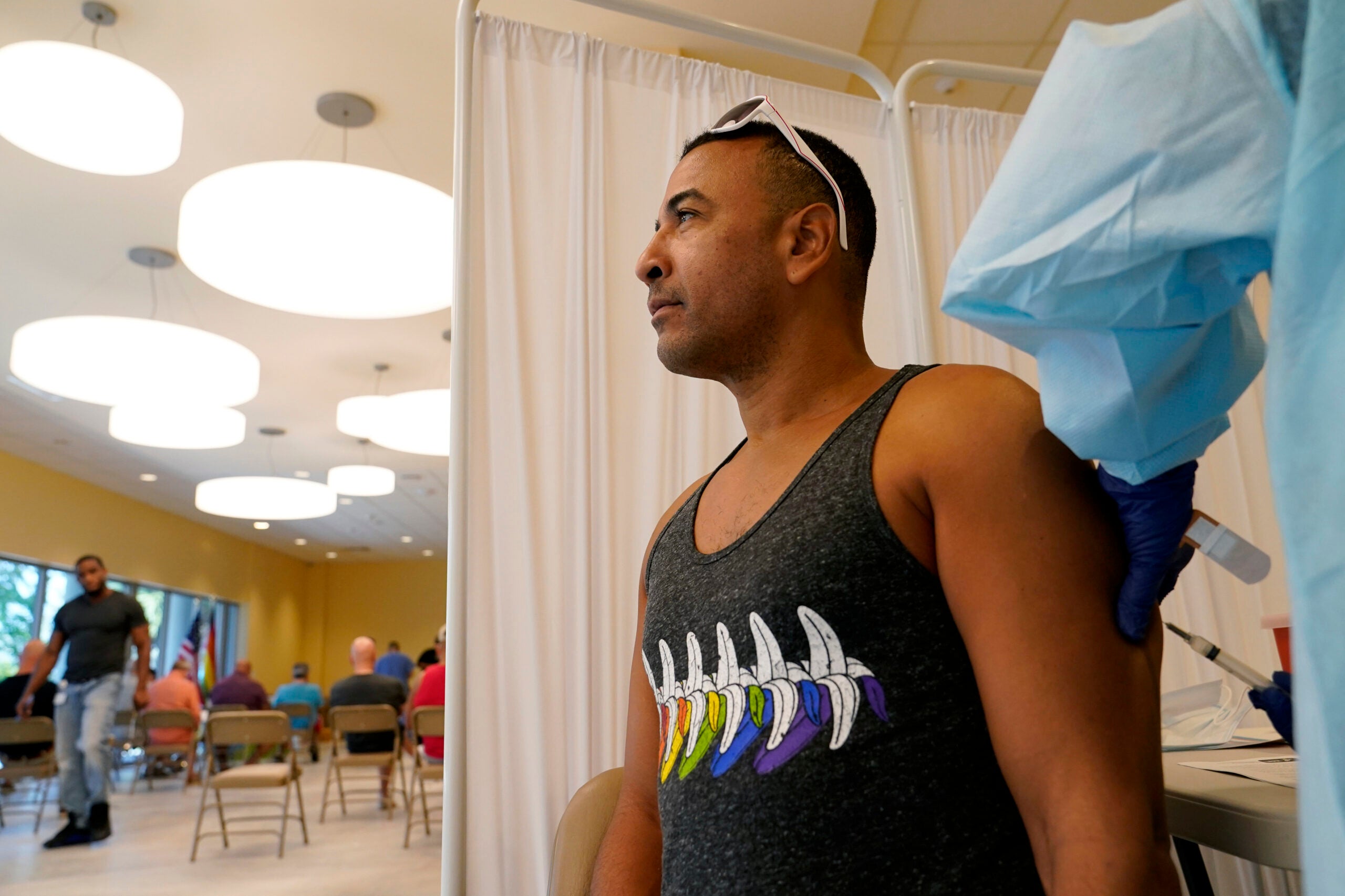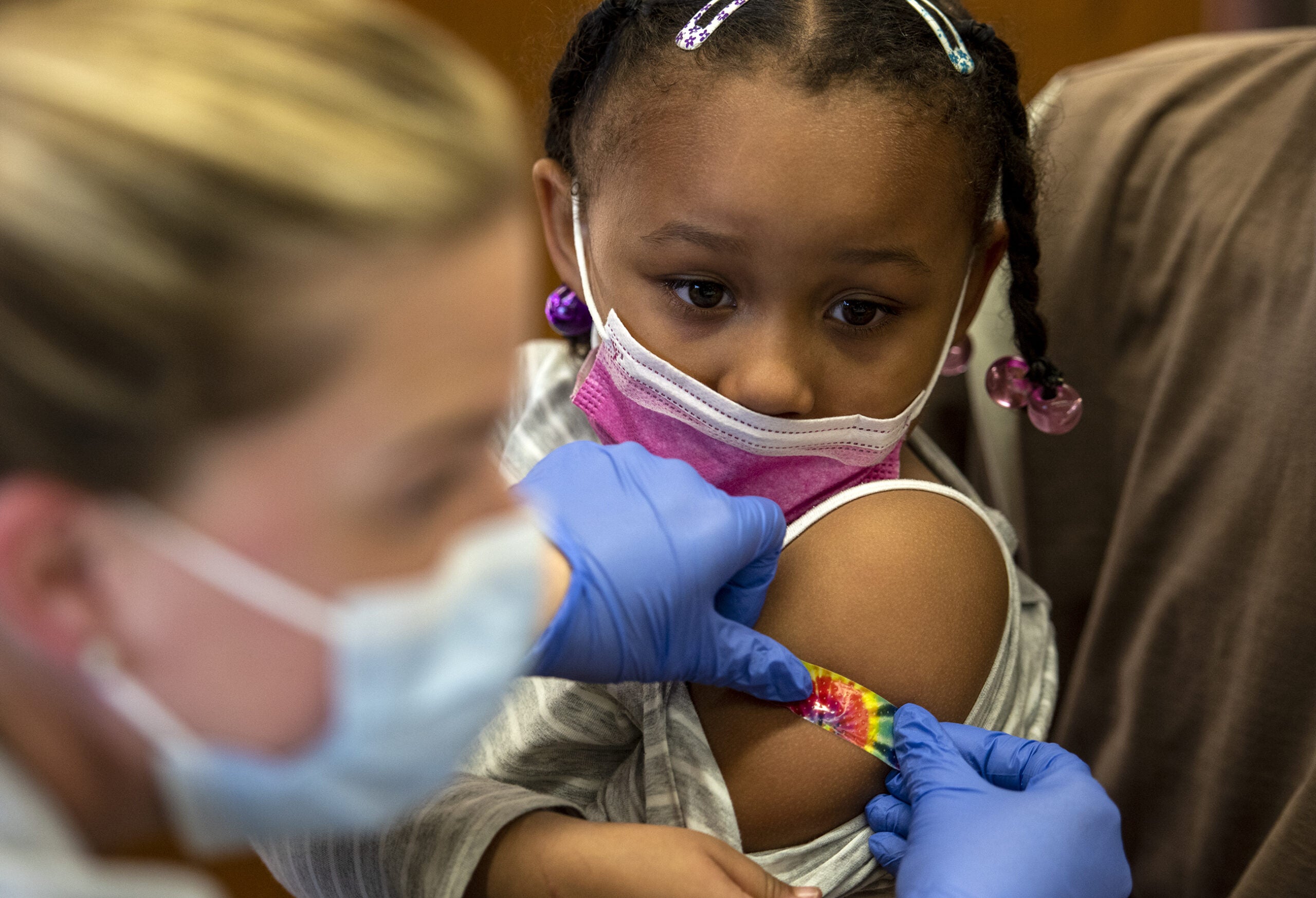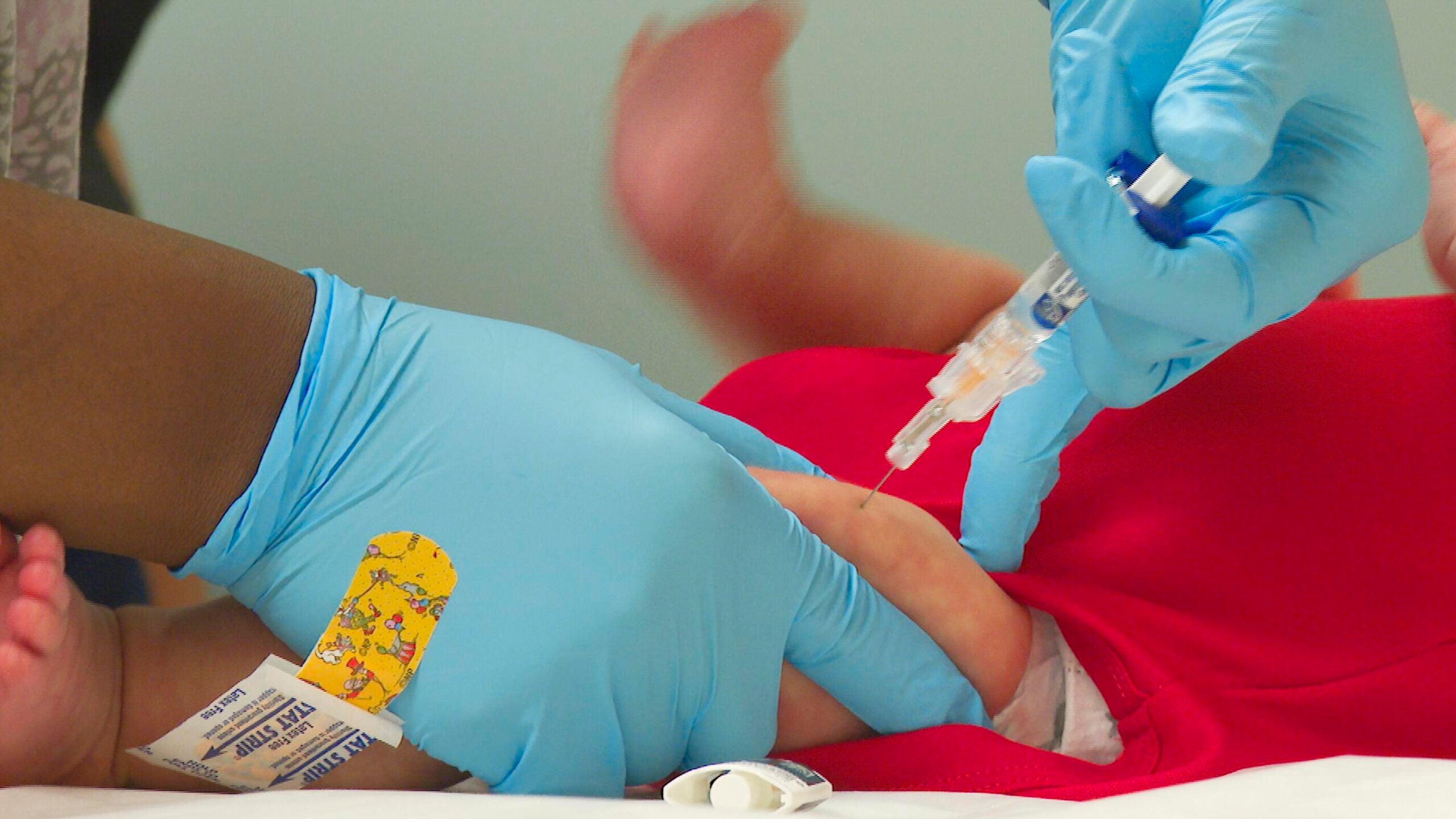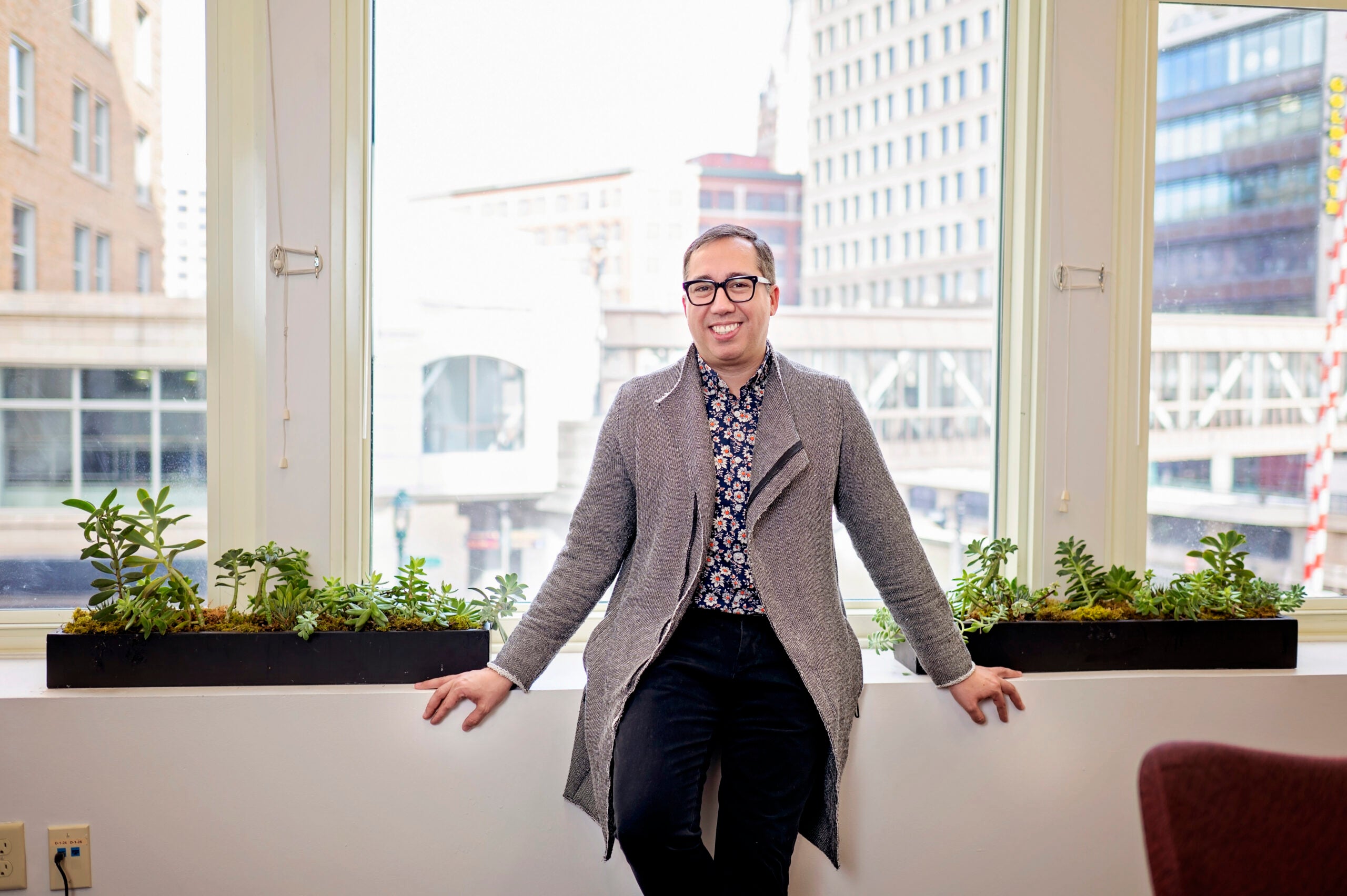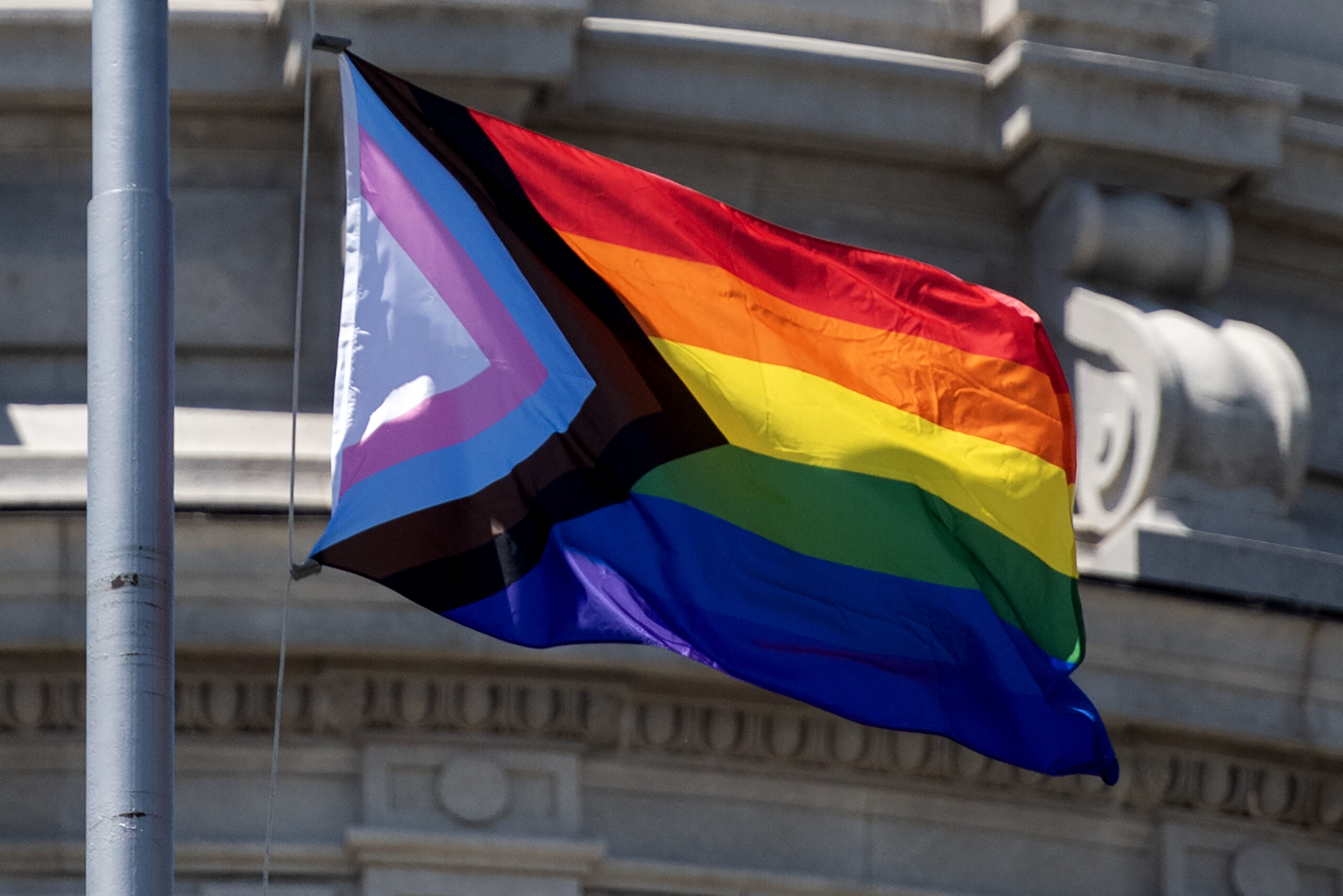Wisconsin Democrats in Congress are calling for more vaccines and resources from the federal government to help stop the spread of the monkeypox virus in the state.
As of Monday, the state Department of Health Services reported 42 cases of monkeypox in Wisconsin since the virus was first discovered last month.
Monkeypox is primarily spread through sustained skin-to-skin contact, and contact with items contaminated with the fluids or sores of a person with the disease. A study published last month found that about 95 percent of cases across 16 countries in the current outbreak had been transmitted through sexual and intimate contact, and that the disease had spread predominantly among gay and bisexual men. But health officials have been clear that anyone can contract the virus.
News with a little more humanity
WPR’s “Wisconsin Today” newsletter keeps you connected to the state you love without feeling overwhelmed. No paywall. No agenda. No corporate filter.
U.S. Sen. Tammy Baldwin and her Democratic colleagues from Wisconsin in the U.S. House of Representative sent a letter to the federal Department of Health and Human Services and the Centers for Disease Control and Prevention requesting that more vaccines be allocated to the state.
State health officials said last week that Wisconsin has received 3,286 of the 5,986 vials allocated to the state. But the lawmakers said that number is not enough.
“This is a fraction of the state’s demand. We need more doses, and we need HHS to exercise all available authorities to make sure that individuals at increased risk are protected,” the letter said.
The lawmakers also called on President Joe Biden’s administration to collaborate with the LGBTQ+ community on their response to the outbreak.
“Health care services are too often inaccessible for members of at-risk communities, and these reports are all too reminiscent of the nation’s initial response to the HIV/AIDS epidemic. We must address this crisis, and those at the highest levels of government must make clear that stigma and misinformation will only allow the virus to spread further,” the letter said.
Some of the state’s LGBTQ+ groups are already working to help protect and educate people about the virus.
Kofi Short is director of HIV and STI prevention services at Diverse & Resilient, an LGBTQ+ community organization based in Milwaukee. His group recently hosted a monkeypox vaccination clinic in partnership with a local health care provider, where they were able to give 81 people their first dose of the vaccine.
Short said there was a lot of interest in getting a vaccine and around a third of appointments were filled within an hour of making the sign-up public.
“I was actually really proud of our community for taking things seriously and coming and getting vaccinated,” he said.
Short said he thinks holding the clinic in Diverse & Resilient’s space made a difference in the turnout. He said LGBTQ+ people can face homophobia and transphobia when they speak openly about their lives with health care providers. So working with a group where that stigma doesn’t exist is important.
“Keep ensuring that the organizations who are most closely connected to people at risk are getting access to the vaccinations. We can get to the people, if they can get the vaccines to us,” Short said.
Megin McDonell, executive director for LGBTQ+ policy organization Fair Wisconsin, said the call to work with community groups is not only important for reaching people who could be affected, but also helps ensure there is an equitable response from health care providers and officials.
“It’s not necessarily affecting everyone the same way right now. And so it’s sort of balancing those equity issues, making sure that we are getting the vaccine access and the treatment access to people who are sort of most in need of that and using that as a strategy to benefit the entire community,” she said.
McDonell said community organizations can also help ensure that outreach efforts don’t further escalate the misinformation and stigma that’s developed around the virus.
Wisconsin Public Radio, © Copyright 2026, Board of Regents of the University of Wisconsin System and Wisconsin Educational Communications Board.

